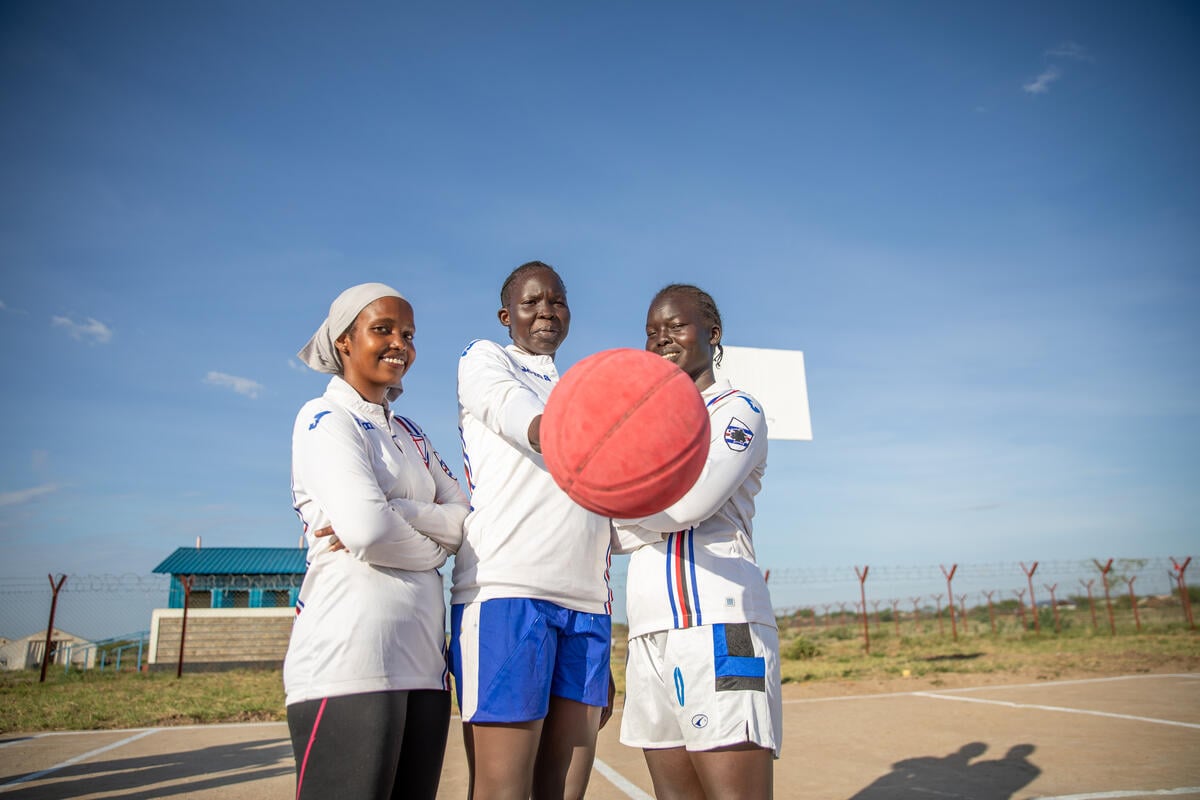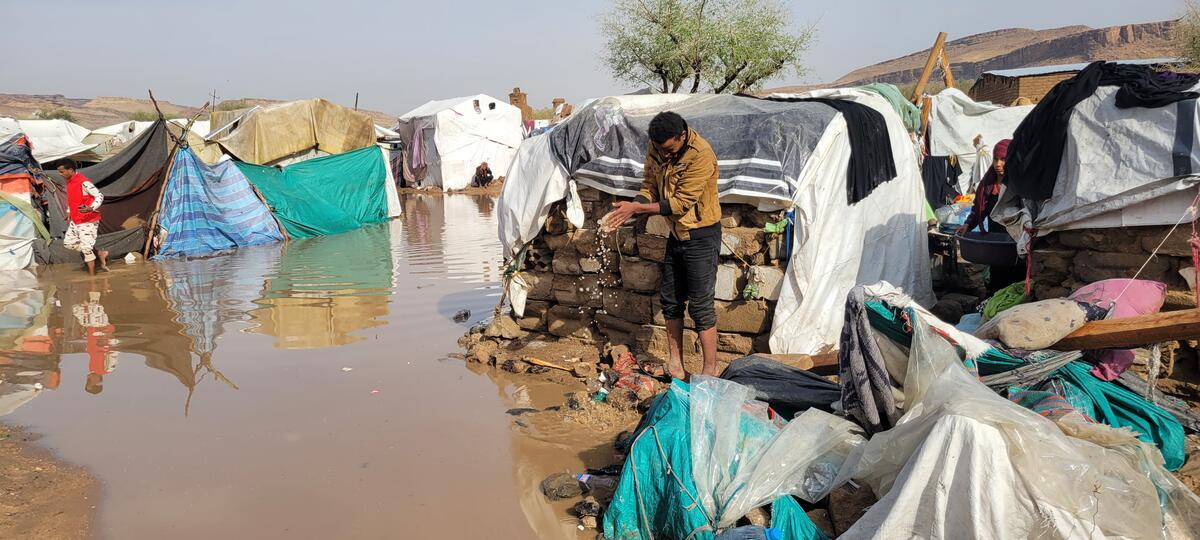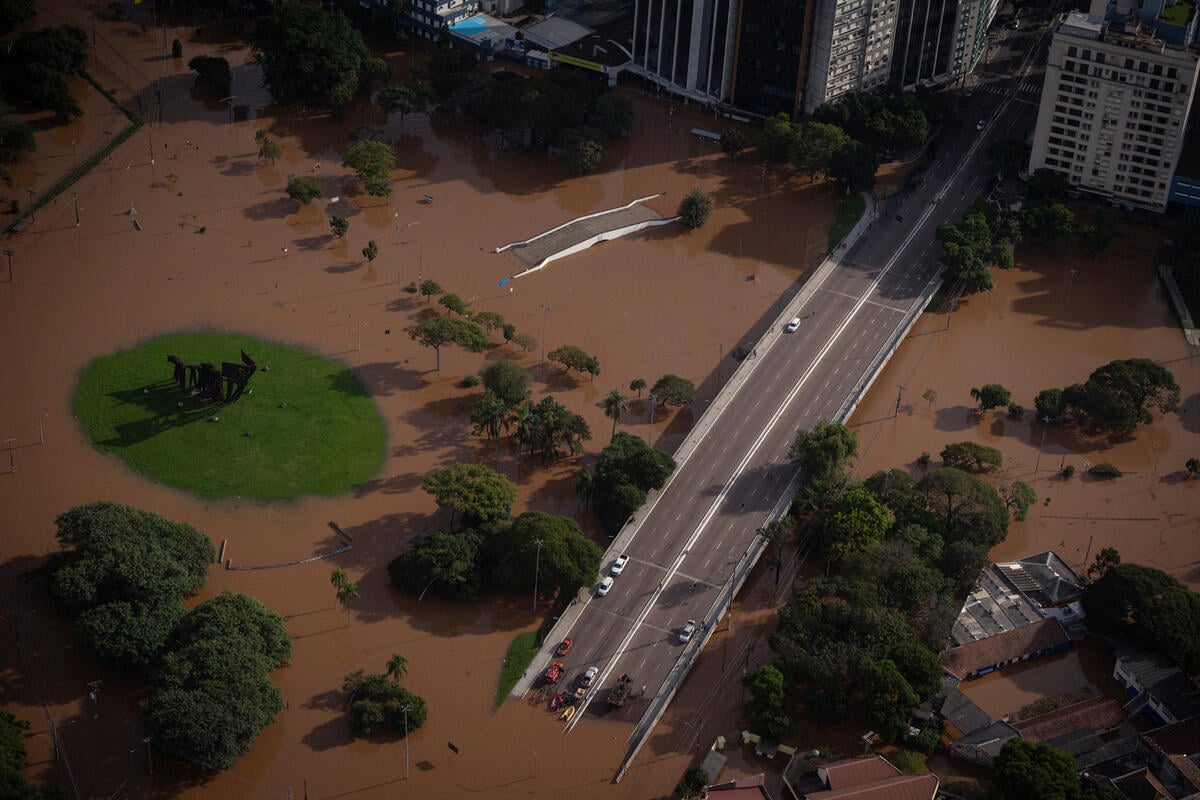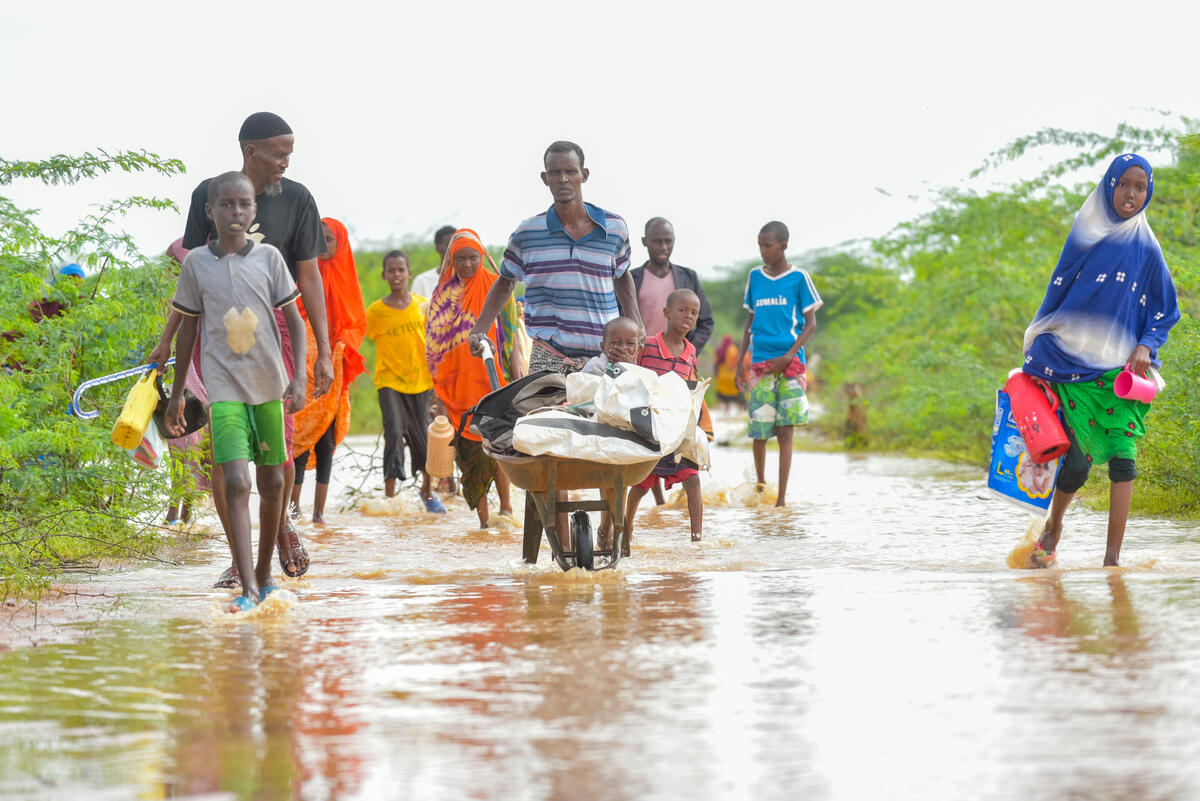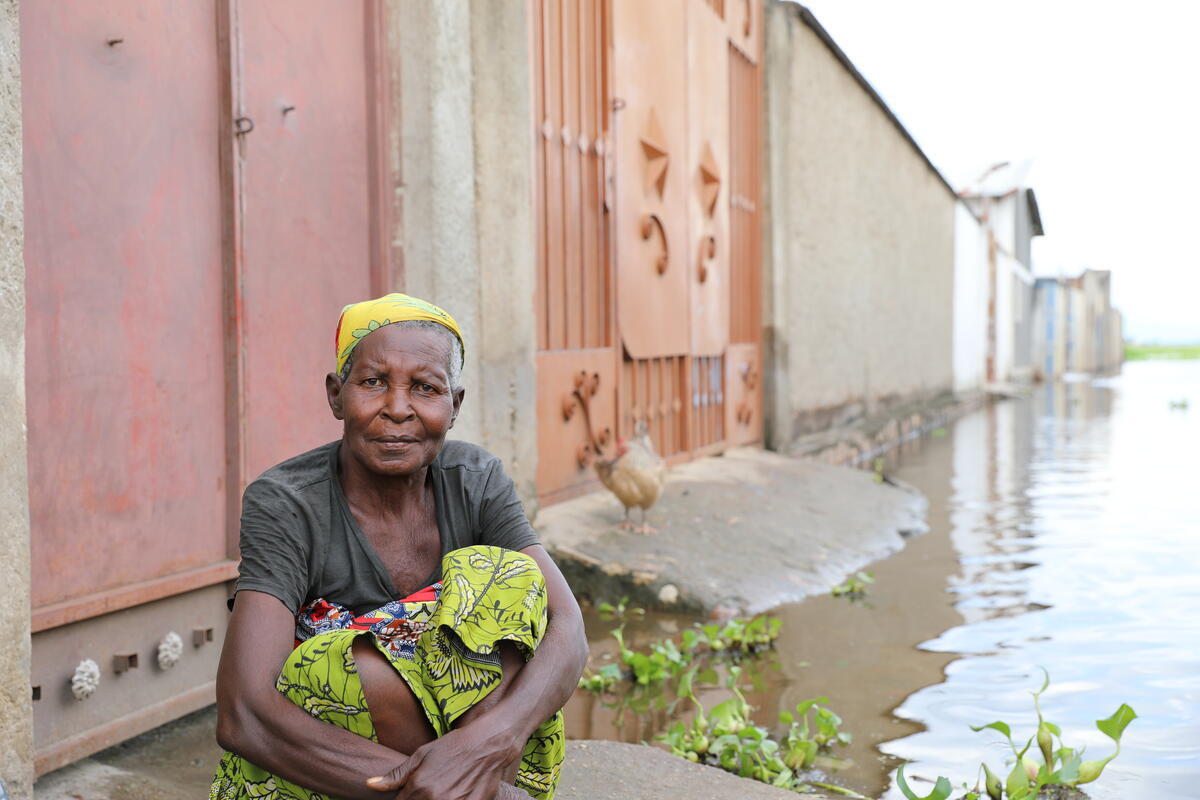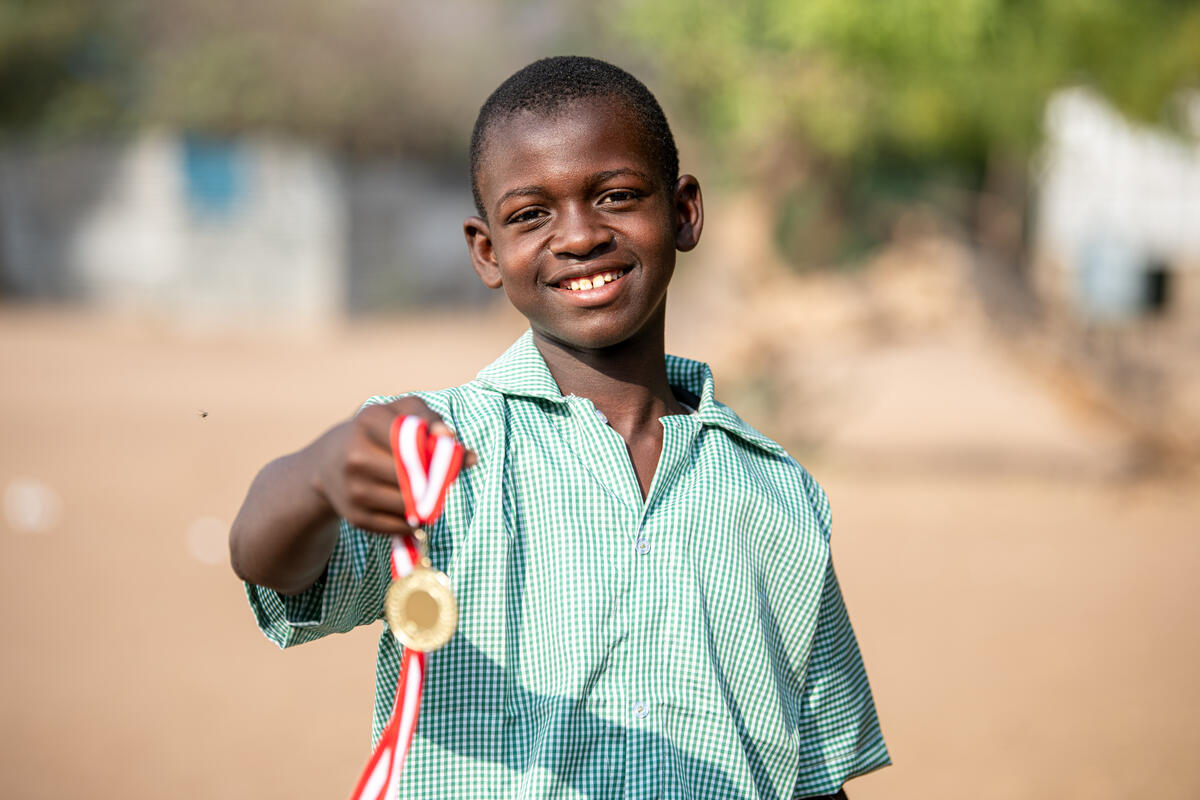Somalia: Number of displaced rises to one million
Somalia: Number of displaced rises to one million
The number of displaced people inside Somalia has risen sharply to a staggering one million, according to UNHCR estimates. Sixty percent of the population, or some 600,000 people, are believed to have fled from the lawless Somali capital, Mogadishu since February this year - nearly 200,000 of them in the past two weeks alone, leaving entire neighbourhoods in the volatile capital empty. The numbers of displaced this year are in addition to some 400,000 people displaced by previous fighting.
The displacement figures, updated regularly through information received from a network of local partners and compiled by UNHCR, show the number of internally displaced people (IDPs) in Mogadishu has risen to an estimated 43,000 people from 33,000 a week ago. Many IDPs in Mogadishu are sheltering with relatives and friends, sharing cramped rooms with several other families. An increasing number of IDPs have also headed to makeshift settlements in Mogadishu neighbourhoods such as Madina/Wadajir, Dayniile, Waaberi, Dharkenley and Kaaran. At the same time, estimates on the number of IDPs living in increasingly desperate conditions in more than 60 makeshift settlements along the 30-km stretch of road linking Mogadishu and the nearby town of Afgooye have shot up to nearly 200,000 - a 50-percent increase in the past two weeks alone. We are also beginning to see new arrivals from Mogadishu in areas as far afield as Afmadow, Sakow, Jillib and Bu'uale in the Juba valley about 350 km south-west of Mogadishu. There are an estimated 8,500 IDPs in these areas.
A UN inter-agency mission to Afgooye on Saturday echoed reports of dire living conditions for IDPs living in the Afgooye area. Families continue to lack proper shelter and consistently resort to using any material - mostly plastic bags and rags - to patch up their 'tukuls' - flimsy dome-shaped shelters. IDPs told the inter-agency team their most urgent need was food, with many children being malnourished. IDPs also expressed a pressing need for health care. Many relied on one hospital and some mobile clinics operated by NGOs, but the health needs of those displaced surpassed the capacity of these structures. Displaced children in the settlements have not attended formal school in months, although a few Koranic schools have been set up in some areas.
Many of the IDPs told the team that they felt relatively safe in the Afgooye area. In general, landlords who provide IDPs with a very tiny patch of land to erect their shelters also provide security. IDPs usually have to pay 1,000 Somali shillings a day - US$1.5 a month - a sum which may seem tiny but is a burden to families who are totally destitute. Some IDPs also have to give part of the humanitarian aid they receive to gatekeepers, individuals who act as self-proclaimed managers in some of the settlements. In addition, IDPs pay for the use of latrines - often too few for the number of people.
Although IDPs express confidence in security in the Afgooye area, we are increasingly worried about security incidents there in the last several days. On Sunday, an explosion in Afgooye town killed six people, creating panic among the IDPs. On Friday, an aid worker was killed by a stray bullet as she helped distribute relief supplies to needy IDPs in the area.
Elsewhere, another inter-agency team based in Galkayo, 700 km north of Mogadishu, visited the Dusa Mareb area in Galgaduud - the first visit to the area in nearly six months. The Galgaduud area has an estimated 120,000 IDPs - some of them former residents of Mogadishu. The team visited five towns in the area and found that in some areas the population had more than doubled, placing a huge strain on host communities. Because of persistent insecurity in the area, regular humanitarian assistance to these areas south of Galkayo has been ad hoc and dependent on security access. Water, health and sanitation needs are immense. UNHCR is working to establish a presence in the area.

